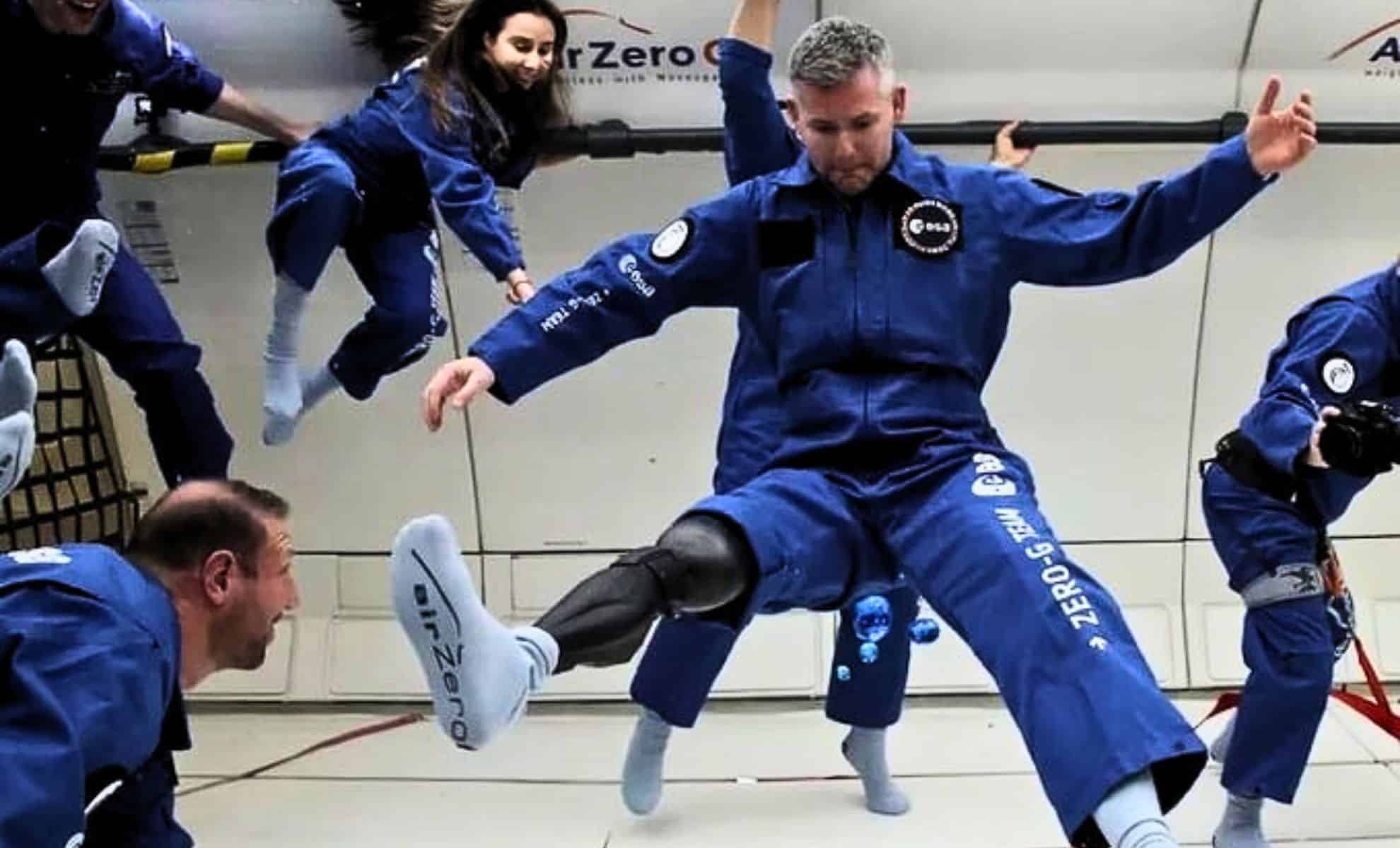
John McFall, recognized as the first para-astronaut of the European Space Agency (ESA), has officially received medical clearance for an extended mission aboard the International Space Station (ISS). This significant update was shared by Daniel Neuenschwander, ESA’s Director of Human and Robotic Exploration, on Friday. This development is a landmark moment for space exploration, demonstrating that individuals with disabilities can pursue their dreams of reaching for the stars.
A Pioneering Move for Inclusive Space Travel
McFall, a 43-year-old from the UK, lost his right leg above the knee due to a motorcycle accident at 19. Undeterred, he excelled as a Paralympic sprinter and later trained as a surgeon. His selection in 2022 as ESA’s first astronaut with a disability marks a transformative moment—not only in the field of space exploration but also in societal perceptions of physical challenges.
This announcement follows the completion of Fly!, an ESA-sponsored study that assessed the feasibility and challenges associated with a para-astronaut’s role in microgravity. The findings were conclusive: there are no barriers that would hinder McFall’s ability to undertake a full mission.
To achieve his certification, McFall demonstrated proficiency in all essential astronaut tasks, including emergency protocols, microgravity acclimatization, and daily operations aboard the station. His performance surpassed all expectations.
Neuenschwander initially foresaw potential hurdles but was “surprised” by McFall’s seamless adaptability. He emphasized, “It’s crucial not to overlook safety aspects when functioning on the International Space Station.”
Adapting Prosthetic Technology for Space
While receiving medical clearance is a pivotal achievement, McFall’s prosthetic leg must undergo comprehensive qualifications for space travel. Any item sent to the ISS must adhere to stringent safety and operational criteria, and his prosthesis is no exception. ESA is collaborating with the German company Ottobock to modify the design for use in microgravity.
McFall views this adaptation as beneficial not just for himself but for countless prosthetic users worldwide. “Our work in space can also enhance life on Earth,” he remarked, highlighting the potential advancements in prosthetic technology that could emerge from this mission.
To guarantee the safety of his prosthesis in space, McFall has participated in intensive testing, including cycling in a head-down position to evaluate how microgravity impacts the fit and comfort of his artificial limb. These assessments are crucial for ensuring both safety and performance aboard the ISS.


Preparing for the Official Mission
While the ESA has approved his involvement, McFall’s mission timeline has yet to be established. The subsequent phase will focus on defining the scientific objectives he intends to pursue during his time on the ISS. His participation could yield valuable insights into human adaptation to space, particularly regarding prosthetics, mobility, and rehabilitation in microgravity.
This landmark achievement also highlights varying approaches towards diversity and inclusion in global space endeavors. As ESA advocates for a broad-minded future in human spaceflight, recent policies from the U.S. administration under Donald Trump have rolled back DEI (Diversity, Equity, Inclusion) initiatives.
Neuenschwander acknowledged these differing perspectives, stating, “We are entering a world where the approach towards DEI is becoming slightly different than that of our ISS partners.”
A Beacon of Progress
McFall’s journey transcends personal milestones; it signifies an expansive cultural transformation in the realm of space exploration. As agencies strive for inclusivity, the dream of traversing space is becoming attainable for individuals who may not fit conventional astronaut standards.
As preparations continue, we may soon witness a historic moment: the first para-astronaut living and working in space for six months, illustrating that past limitations do not dictate future possibilities.









